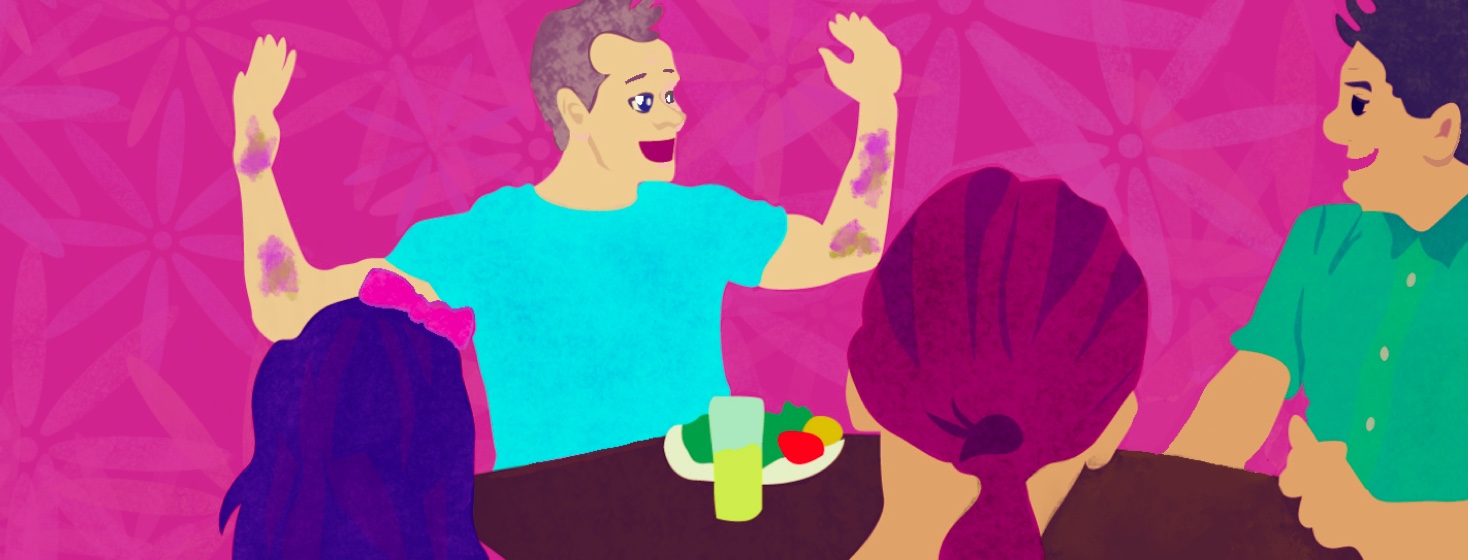Why I Don't Mind People Asking About My Psoriasis
I remember some time ago when I sat on a bus and a group of youngsters thought my psoriasis was eczema. “Look at his eczema,” they said. I felt like I was accosted for my skin problem but did not raise a conversation or discussion about what I actually had on my face.
Then there was another time when I was on the London Underground and a lady was staring at my condition. I didn’t say anything or raise what it was, but those two incidents taught me that I don’t actually mind if people want to talk about what it is they can see.
Finding courage to raise the conversation
You want people to understand that there’s nothing to worry about when it comes to psoriasis. This condition is something that 125 million people suffer from globally. It’s not contagious and can’t be spread around. But I understand that talking about it can be difficult.
I think the reason why I didn’t want to raise a conversation on the two times someone had noticed my condition was because I was still, in all honesty, quite ashamed by it. I thought the psoriasis was my fault and that it was something I couldn’t deal with. Over time, I have learned to walk a path where I can accept my psoriasis. I’m not there yet, as I’ve discussed previously, but I certainly feel a lot better about my psoriasis than I have done previously.
It won't always be easy
The best thing to do in a situation where you feel comfortable to do so is to simply talk about your condition. Be open about it and raise a discussion where you feel it’s appropriate. That might be just to friends and family members, but even if it’s not, and a stranger asks if you simply explain that it’s psoriasis, it’s not contagious and it can’t be spread, and it’s just something a small percentage of the population suffers from, it’s likely to be accepted and end any speculation over what the condition is.
Don’t get me wrong, that can be hard. Like I’ve said, I’ve never raised it in a discussion, but I do wish I was stronger about it and could just talk openly with anyone over what the condition is. As I say, however, I’m on a path and that means I’m not fully there yet over accepting this condition.
Talking can bring empowerment
Talking about psoriasis will teach you things about your condition and will help educate the person asking. There are so many conditions that millions of people suffer from. If you can help end the stigma that psoriasis patients suffer from, you will not only be helping yourself but helping millions of strangers too.
So, next time you’re on public transport, at a pub, or eating at a restaurant, and a family member asks how your psoriasis is, don’t shy away, be open. “Yes, it’s doing fine,” you could respond. Or, if it’s not, “Yes, it’s bothering me, but I am seeing my dermatologist soon,” is another response. If a stranger asks you, remember that it’s a skin condition, it’s lifelong, but it’s not contagious and can’t be spread. Start that chat and be the one to help end the stigma.
Do you have tips for starting a conversation about psoriasis? Or tips on how to handle comments and questions

Join the conversation